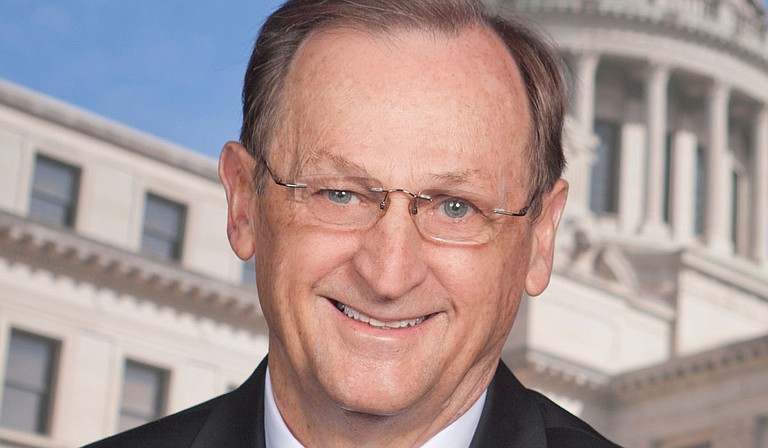Senate president pro tempore, Republican Dean Kirby of Pearl, said in response to reporters' questions Monday: “I cannot find any votes the way it's currently written. ... I haven't found any support.” Photo courtesy State of Mississippi
Tuesday, March 16, 2021
JACKSON, Miss. (AP) — A bill to overhaul Mississippi's tax structure faces a critical deadline Tuesday in the state Senate, but it appears unlikely to survive despite a push from Republican Gov. Tate Reeves.
The Senate president pro tempore, Republican Dean Kirby of Pearl, said in response to reporters' questions Monday: “I cannot find any votes the way it's currently written. ... I haven't found any support.”
House Bill 1439 would phase out Mississippi's income tax and cut the 7% state grocery tax in half. It also would increase the sales tax on most items from 7% to 9.5% and would increase taxes on other items, including tobacco, alcohol, farm implements and manufacturing equipment.
“Eliminating the income tax is the single most important item for future and sustained long term economic growth,” Reeves wrote Monday on Twitter. He has not taken a position on other parts of the bill.
Republican House Speaker Philip Gunn and his allies introduced the bill Feb. 22, and it zipped through the House Ways and Means Committee that day. It passed the Republican-controlled House the next day on an 85-34 vote that was largely along party lines, with only a few Democrats supporting it and only one Republican opposing it.
Passing a tax bill requires a three-fifths majority. Although Republicans hold that margin in the Senate, many senators say they want more time to evaluate it. The bill will die if senators don't pass it by the Tuesday deadline, either with or without amendments.
The Senate Finance Committee met Monday but did not bring the bill up for discussion. The committee chairman, Republican Josh Harkins of Flowood, told reporters afterward that the bill, which runs more than 300 pages, is “intriguing,” but he wants to see a thorough evaluation of how it would affect businesses and others.
“The most important thing for us to do is to do something responsibly that puts our state in the best position to be competitive — competitive for growth, competitive for prosperity, competitive for success,” Harkins said.
Harkins said the Finance Committee will meet on the tax bill Tuesday only “if we have the votes to bring something up.”
Mississippi legislators have not discussed how a federal coronavirus relief package might affect their tax proposal. The package signed by President Joe Biden last week prohibits states from using federal relief money to pay for tax cuts. But the Mississippi tax cut plan originated weeks before the federal legislation was signed.
“Our tax policy needs to be formulated on what's best for Mississippi, not ... as the winds blow from D.C.,” Harkins said Monday.
Republican Sen. Chris McDaniel of Ellisville told The Associated Press on Monday that he wants to try to amend the House bill to simplify it. His idea is to eliminate the 4% income tax bracket in 2022 and then phase out the 5% income tax bracket over 10 years. He said the 5% bracket would phase out only if the state economy grows and that would enable state government to pay for essential services.
“We're killing one of the best opportunities we've ever had to reduce taxes in this state,” McDaniel said.
Gunn and other supporters of the bill say it could help Mississippi compete with states that already don't have a personal income tax, including Texas and Florida.
Public policy groups have lined up for and against Mississippi tax cut proposals. Empower Mississippi is among the conservative groups that have said phasing out the income tax would reward productivity. The left-leaning Center on Budget and Policy Priorities has said four of the five states that made deep cuts to personal income taxes in the first half of the 2010s later lagged behind national averages in job growth and personal income.

Comments
Use the comment form below to begin a discussion about this content.
Sign in to comment
Or login with:
OpenID